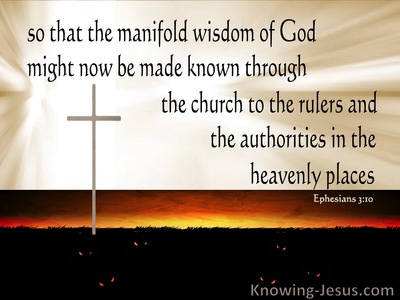Sunday September 2nd 22nd Sunday Ordinary Time
(Cycle B)
Freedom
The tie in between
today’s readings: There is No Liberty Without God
Have
you ever wondered what a Theocracy under God would look like? In today’s Old
Testament reading, Deuteronomy 4: 1-8, God is preparing His people to take
possession of the Promised Land. They have a priesthood to worship Him and His
law to guide them with prophets and judges to maintain order. There is no
legislature because God is their king. If each person sticks with
the framework, they will not only posses their inheritance promised by God, but
they will live in a society whose shared moral code is outlined in Psalm 15. He
is setting up Israel to become a beacon to the world. Israel will be great
because Israel will be good to the glory of God, as long as they can avoid
incidences like the one at Baal-peor.
Baal-peor is the
culmination of a very interesting story between a sorcerer named Baalam and
Balak the Moabite king (Numbers 22-25). Essentially, a Moab/Midianite coalition
would not be able to defeat the Israelite army in the field. Baalam suggested a
plan to destroy Israel from within by corrupting the worship of Jehovah with
Baal worship. The plan worked very well. The leadership got sucked into the
trap and many of the people followed. In
a Theocracy, this is tantamount to high treason. God slew 24,000 of His own people and declared
war on Midian to finish them off for their treachery in the matter. Throughout
the Old Testament, God takes dramatic and decisive actions against idolatry and
sin because it strikes at the heart of a shared moral code necessary for a
free society. Without it, a nation descends into chaos, totalitarianism, and destruction as Israel eventually does.
“You shall not
add to the word which I am commanding you, nor take away from it” (Deut. 4:2a).
In Mark’s gospel, Jesus confronts the Pharisee’s lip service to God’s law. The traditions of men, such as keeping the Sabbath,
or ritual washing, add to God’s words with a veneer of misguided righteousness.
Their teachings about divorce and Corban use a little lawyerly slight-of-hand
to nullify the intent of scripture. Unlike the open rebellion of idolatry,
these are a hidden contempt for the Almighty. God is not mocked. Even today, we
play these games with Him. God hates an empty “go through the motions”
religion, transforming worship into a clueless chore done out of duty. He also
despises the replacement of sound doctrine with our uninformed self speculations.
As in ancient Israel, both are a
breeding ground for sin and undermine the shared moral code. Our practical idolatry with worldly things and
our lack of concern with Biblical teachings has brought us to the point where
we are asking the question: “Is there anything wrong with anything?” We need to
take a good look at ourselves.
Isaiah 5:20-24 New
International Version (NIV)
20 Woe to those who call evil good
and good evil,
who put darkness for light
and light for darkness,
who put bitter for sweet
and sweet for bitter.
and good evil,
who put darkness for light
and light for darkness,
who put bitter for sweet
and sweet for bitter.
21 Woe to those who are wise in their own eyes
and clever in their own sight.
and clever in their own sight.
22 Woe to those who are heroes at drinking wine
and champions at mixing drinks,
23 who acquit the guilty for a bribe,
but deny justice to the innocent.
24 Therefore, as tongues of fire lick up straw
and as dry grass sinks down in the flames,
so their roots will decay
and their flowers blow away like dust;
for they have rejected the law of the Lord Almighty
and spurned the word of the Holy One of Israel.
and champions at mixing drinks,
23 who acquit the guilty for a bribe,
but deny justice to the innocent.
24 Therefore, as tongues of fire lick up straw
and as dry grass sinks down in the flames,
so their roots will decay
and their flowers blow away like dust;
for they have rejected the law of the Lord Almighty
and spurned the word of the Holy One of Israel.
A free society
starts with the individual. In James 1: 17-27, today’s epistle, he compares the
word of God to a mirror. Lip service people give a casual glance into God’s
looking glass, disregard their unflattering reflection, and turn away unchanged. Preferring
sin, morality breaks down and bedlam ensues. Society gives up freedom for
order. A strong centralized government arises, which will threaten all
established rights or worse. We need to be the people who intently look at God’s word and
conform to it. James calls it the perfect law of liberty. “If the Son shall set
you free, you shall be indeed free” (John 8:36). So now it comes full circle.
God’s implanted word in my life will transform me into a Psalm 15 kind of
person, who loves God and neighbor. Belief in the God of the Bible creates the
Church, which fosters a culturally shared moral code. This moral code acts as a
law unto itself and keeps society together without the need of a police state.
We can be free because we are good. This is not the current situation in our country.
We are losing our common moral code. But it’s not too late. God has given a way back:
2 Chronicles 7:14 New
International Version (NIV)
14 if my people, who are called by my name, will humble themselves and pray and seek my face and
turn from their wicked ways, then I will hear from heaven, and I will
forgive their sin and will heal their land.

